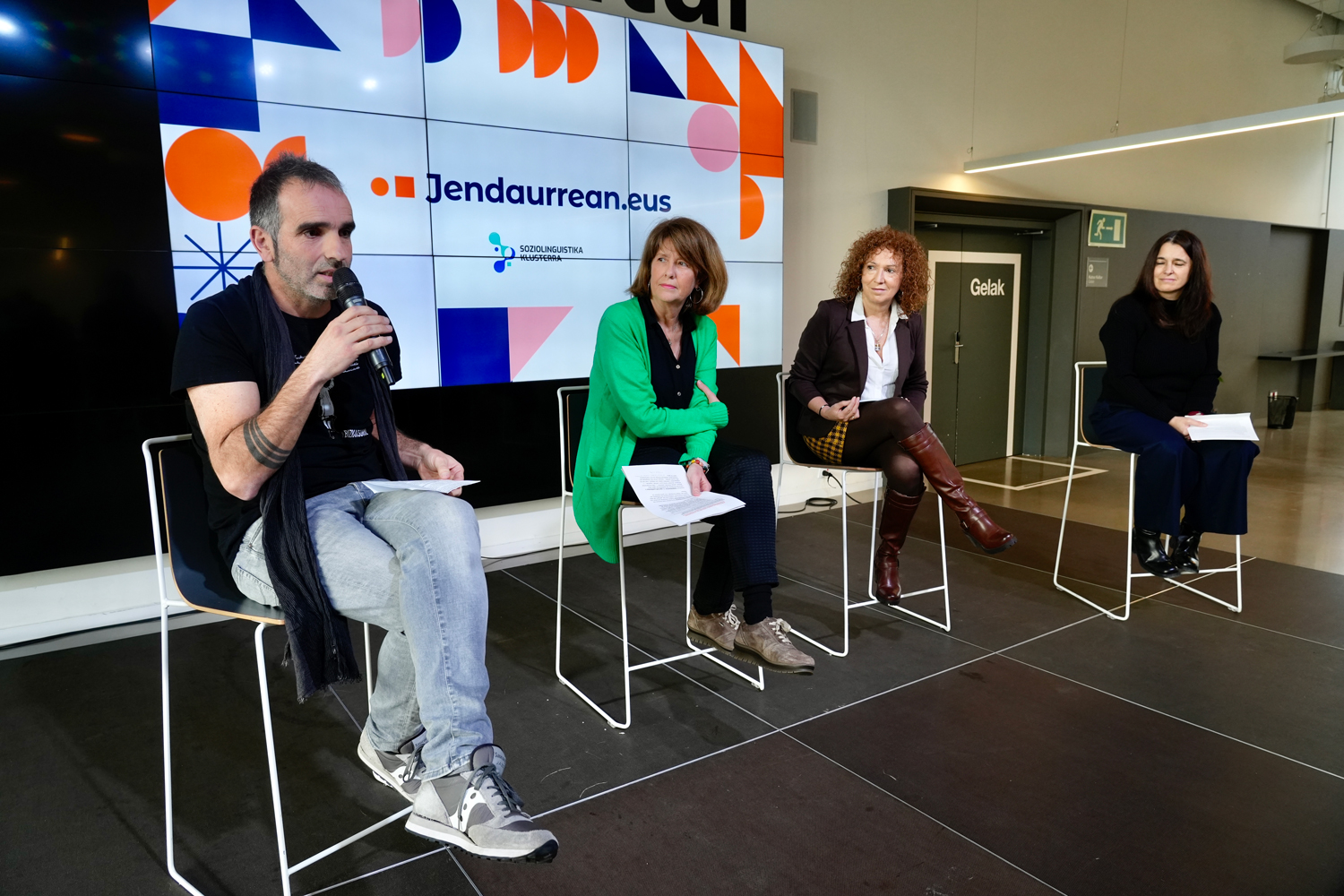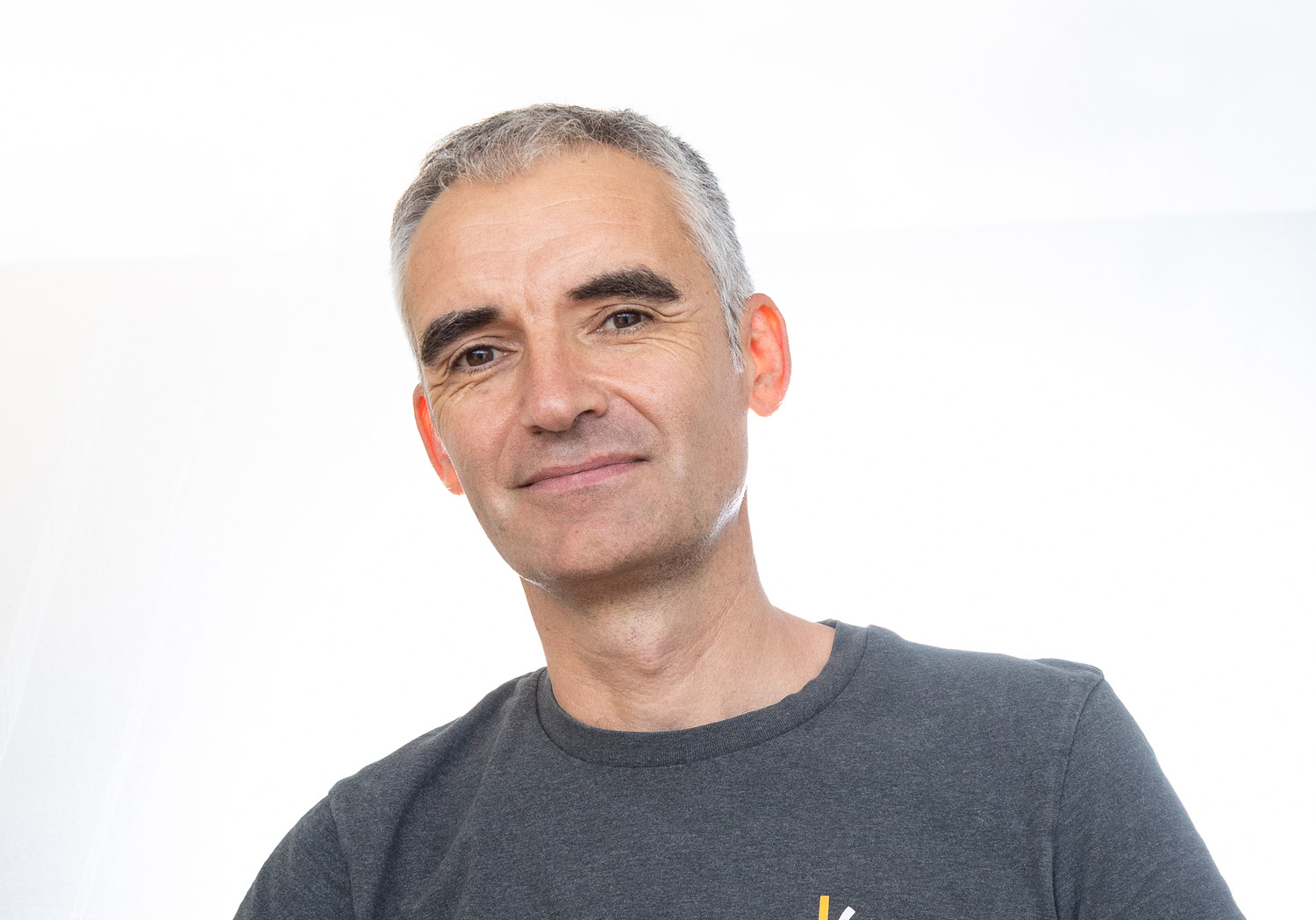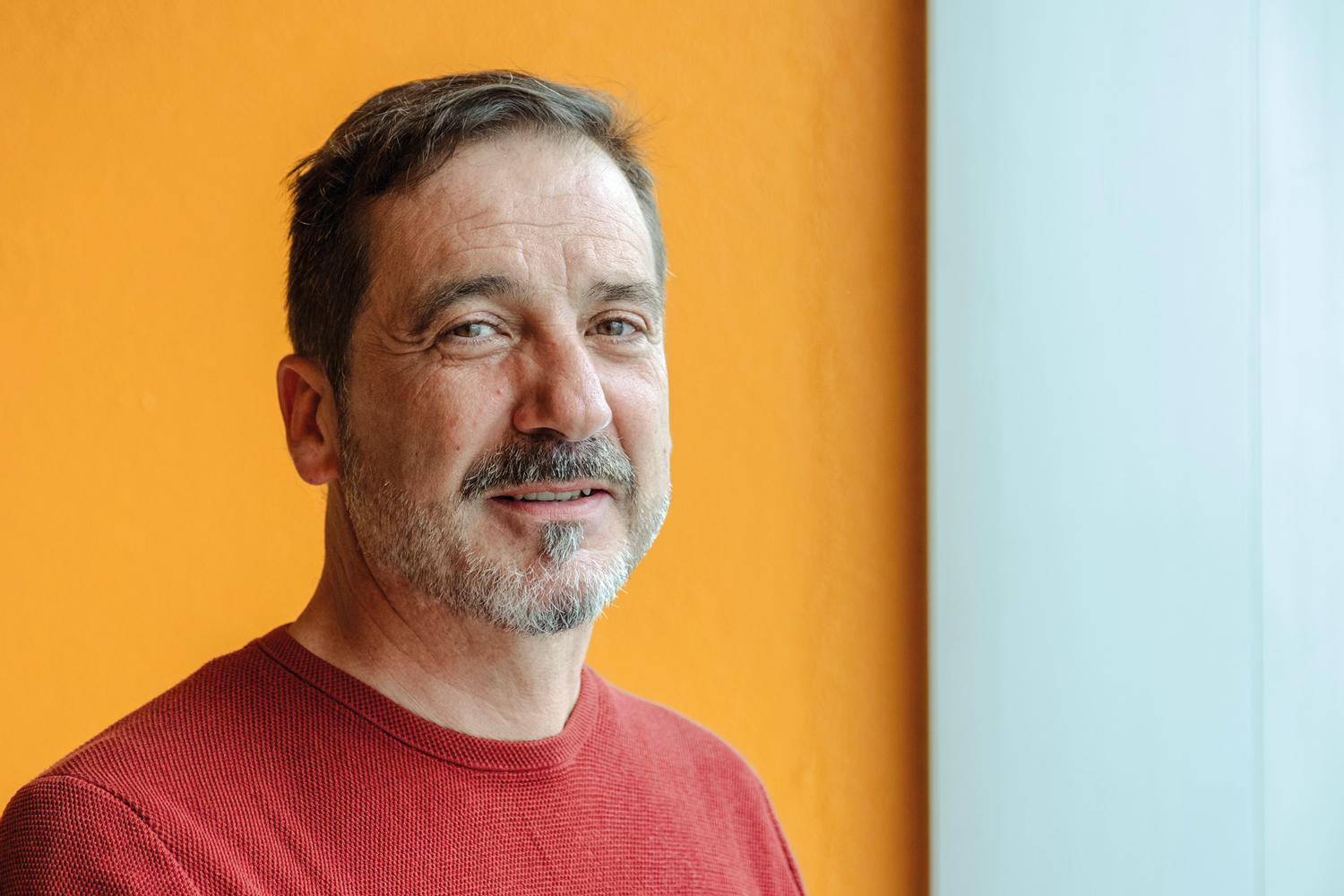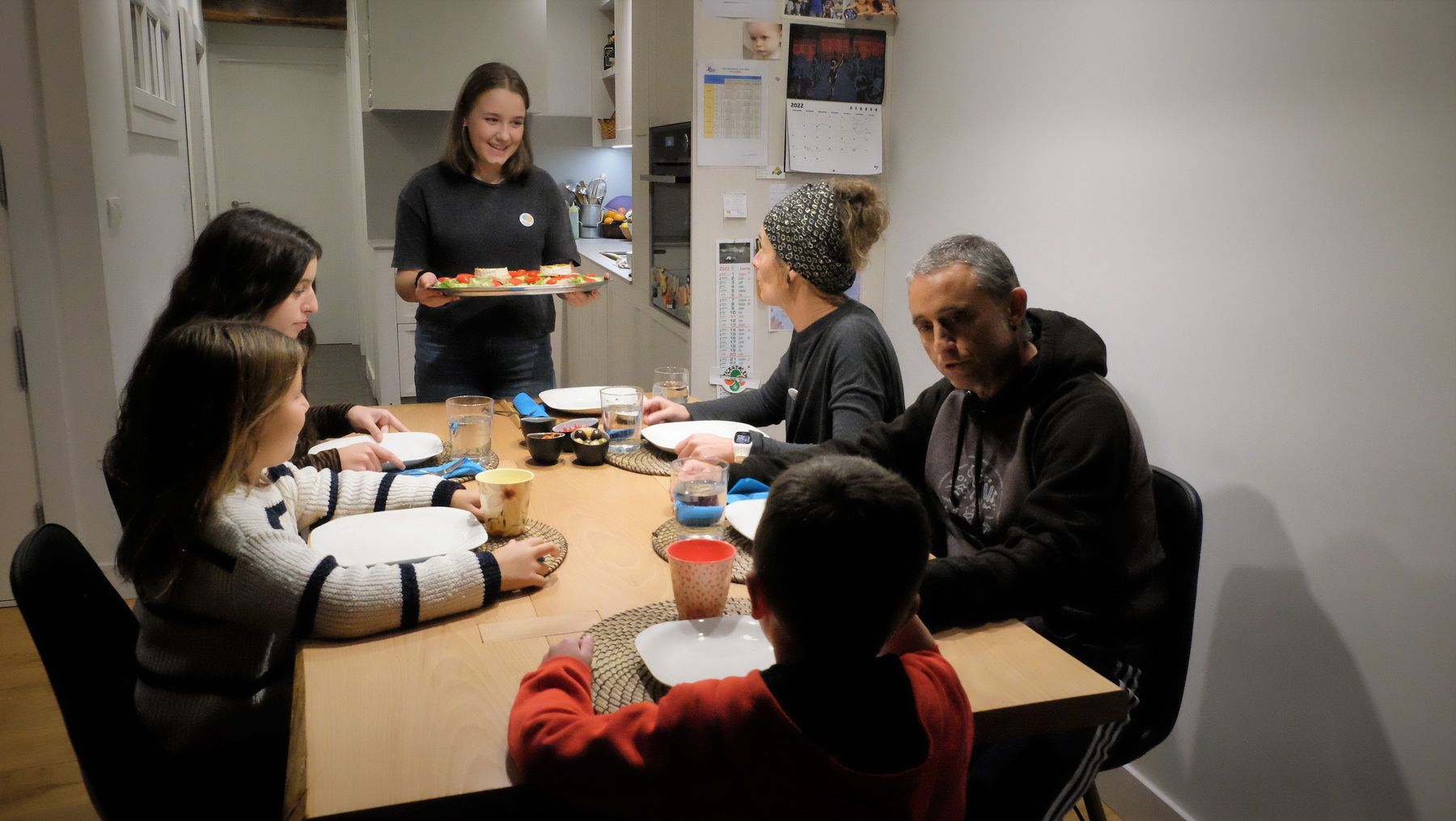If you don't know how to manage languages in meetings, this guide will help you
In how many communication situations does the Basque Country lose? Because the person responsible has not thought about how to manage languages, because there are resistance and there are no arguments to answer them… The Sociollinguistics Cluster has put a guide on the Internet jendaurrean.eus. It is an orientation tool that offers recommendations and keys to getting the Basque Country to occupy as much space as possible in public communications.

The Sociolinguistics Cluster and several entities have, for nine years, carried out practices in this direction and have constantly shared experiences, experiences and doubts among them. The project used its name publicly and, once completed, the Cluster has decided to shape all this knowledge and make it available to anyone. We interviewed Asier Basurto, a member of the Sociolinguistic Cluster, for explanations about the guide.
What is the guide jendaurrean.eus?
It is intended to be a practical guide for all those who want to make public communication from the institutions for proper management of languages. By managing it correctly, we include giving the Basque a place as orderly as possible and as broad as possible. When we talk about public communication, we are talking about the thousand actions that an organization takes outward. They are the needs of organizations of a wide variety of types, both in the digital sphere and in social networks, and also in person in events, meetings, broad meetings, etc., as well as in relation to the press...
There may be a thousand contexts, a thousand conditioning factors, and we have tried to include in this guide some recommendations and references that can be used quite flexibly. It aims to be a practical tool for people with doubts and needs in this area.
You mentioned the institutions. Can it serve for popular movements, associations and groups?
Yes, no doubt. We have chosen the word entity, knowing that it was difficult to choose for all recipients. For example, we have also taken into account educational establishments. A typical case is that of meetings with parents around school. In the public project this topic has been discussed many times: two meetings, a meeting, how to collect the profiles of the participants, who understands it, who does not... How to manage it. The associations also hold many such meetings. Convening a broad meeting and how to manage it? Whispering, simultaneous translation... This is a typical case, but associations also have to do with the press, use social networks...
The guide is valid from international cultural institutions to universities, public institutions, associations, schools, large companies, small...
Asier Basurto: "If you improvise, if you don't think about it and think about it before, the Basque country has little place"
You haven't offered magic recipes, right?
We have collected recommendations, keys, references... We do not say how things should necessarily be done, and even less, “so it always works well.” With our recommendations, an organization decides to do it one way and another decides to do it differently, because they are in a different context, because they have different needs ... And maybe they both get along.
What to do? How and where? These recommendations and references are set out in paragraphs 1 to 4. In each of the paragraphs there is a review list that seeks to answer questions such as “have you thought this?”, “have you decided this?” In our view, by making each of them, we will be closer to making the right decision.
For nine years, through the Erabili project, several entities have exchanged experiences in linguistic management. What conclusion did you draw?
The main conclusion is that we have to reflect on these things, if possible in the group, make decisions, choose, dedicate time, resources, and if it doesn't work well. What loses in this good thing is the use of Euskera. If it is improvised, if the event starts to be organized and you do not think how the spokesperson will speak, how the attendees will be welcomed, if you do not think and reflect on it before, the Basque Country has little place. The more it is planned and controlled, the more decisions are made in favour of minority languages. Moreover, the trend is always: “it’s easier...”, “everyone understands...”, “the habit is like this...”, and in the end in Spanish.
If you have to come to a meeting with what you know and don't know Euskera, mixed, and if we haven't thought about that, how will we do the meeting? “If we all have to understand it, we will do it in Spanish”, but if we think and decide that we are going to make a whisper or that we are going to use a translation system, then either we bring the documentation in Spanish and understand the oral… but we have to think about it before.
You have developed a guide to help you make decisions. Concerns, resistance, clashes... arise when decisions are made and put into practice. Are there resources in the guide to manage them?
Why does the guide contain? That is paragraph 1. There is an argument to explain why an organisation should work well on the use of languages in public communication. There are the arguments to justify well: we do so and so on. Argumentation wants to be a help when the organization makes its decisions abroad and also for the interior of the house. For example, for Euskera technicians or those responsible for communication who seek to expand the Euskera space and who bring proposals to the decision spaces inside the house. Another example is that if a company decides for the first time to hold the general assembly of the company in bilingual.
The recommendations to cope with the resistance of the people-and there are, there is not a section expressly, but there are some keys. One is transparency and making accounts explicit. Announce how a meeting will be held: it will be held in Basque and the translation will be available to those who want it. Or next week’s report will be in Basque and will eventually have a summary in Spanish. Put in advance, these kinds of things are not taken by surprise, and sustenances and dislikes can be saved. It is important to speak in advance.
The second conclusion is adaptability, the need to understand each context, not just copy the formula, but think with whom you're working, what ... They must be tested on a continuous basis and the results evaluated. Sometimes we get it wrong, the next we do it differently: this we have to prepare it before, this we have to think more, here we need more money...
Asier Basurto: "One of the keys is transparency and making accounts explicit. Announcing how a meeting will be held"
Therefore, if we do not work before, we are subjected to improvisation.
Let me give you two examples. Once, the organiser of the meeting departs from his responsibility: “Let everyone do it in whatever language they want,” and there are Castilian speakers! It puts the responsibility on who wants to speak in Basque; yes, I will do so in the language I want, but some do not understand me.
In the other example, the speaker thought that the talk would do everything in Euskera, although they had not clearly indicated to him that it would do everything in Euskera. And when it comes to giving the conference, some have told him that they don't understand Euskera, and have asked him: “Intercalate languages, make a summary in Spanish…”. That is a problem for the organizer, the burden cannot be left to the speaker. Do you have to be able to explain the same thing in both languages, to summarize it? It's either tied up or not improvised. For example, we have to get people who sign up for talks to ask how much they understand, read and do Basque, and that's why the organizer will make decisions.
I think it will have to do with the hangover of the profession, but I have to acknowledge that I look at the linguistic landscape of the places I visit. Signs that stick on the walls, hanging from streetlights, billboards, and supports that appear in shops or companies (signs,... [+]





















